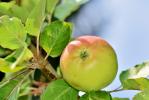H2020 SMART PROTEIN Project: Smart protein for a changing world. Future-proof alternative terrestrial protein sources for human nutrition that promote environmental regeneration, processing viability, and consumer trust and acceptance.
- Type Project
- Status Signed
- Execution 2020 -2024
- Assigned Budget 8.179.214,26 €
- Scope Europeo
- Main source of financing Horizon 2020
- Project website Proyecto SMART PROTEIN
Proteins are essential nutrients for the human body. All foods made from meat, poultry, seafood, beans and peas, eggs, processed soy products, nuts, and seeds are considered part of the protein group. The main challenge is to ensure global access to healthy diets based on sustainable food systems.
The EU-funded SMART PROTEIN project is addressing this problem through future-proofed protein supply chains with a positive impact on the bioeconomy, the environment, biodiversity, food and nutrition security, and consumer confidence. It is validating and demonstrating innovative, cost-effective, and resource-efficient plant protein products from fava beans, lentils, chickpeas, and quinoa. Microbial biomass proteins will be created from edible fungi by recycling side streams from the pasta (pasta waste), bread (bread crust), and beer (spent yeast and malted root vegetables) industries.
Trials with Smart Protein crop varieties (quinoa, lentils, chickpeas, and fava beans) have been conducted on seven pilot farms across Europe (IE, PT, DK, NL, PL, ES, and IT). An initial report was prepared describing the climatic and agronomic characteristics of each pilot farm and making recommendations for subsequent growing seasons. A second report was prepared evaluating cultivars at the different growing sites with respect to crop adaptability, yield, quality, pathogen susceptibility, and more. This work will help inform the selection of the most suitable protein crops for cultivation in different geographical locations across Europe.
The first trials for industrial air separation of lentils, chickpeas, and yellow peas have been carried out, and the corresponding protein-rich flours have been made available to the project. Protein extractions from lentils and fava beans have been demonstrated and validated at pilot and near-industrial scales, respectively. Chickpea protein extraction has been optimized on a small scale. Industrial side streams provided by project partners have been analyzed, and fungal/side stream combinations for solid-state and liquid fermentations have been tested. Fermentation trials with promising combinations have been successfully conducted. Literature reviews have been conducted to consolidate knowledge on alternative food products based on plant proteins. Industrial suppliers for ingredient outsourcing have been identified, and a comparative evaluation of the products with commercially available plant-based alternatives has been conducted.
The ingredients have been characterized for their compositional and technofunctional properties, and a series of fermentation trials have been conducted on foods enriched with plant-based products, as well as on raw materials, to produce novel products. Process optimization for meat substitutes using low-moisture extrusion has been performed with reference ingredients; high-moisture extrusion technology will soon be tested. Digestibility assessments have been conducted on a range of ingredients (e.g., red lentil protein isolate, pea protein isolate, fungal mycelium) using in vitro digestion and peptide profiling. The experimental design for the simultaneous analysis of four individual proteins using the SHIME model has been finalized. Ethical approval has been sought to conduct a human intervention study on the effects of plant proteins on recovery after exercise. Discussions have been held with project partners from academia and industry on the topic of business development.
Secondary market data for Smart Protein's target food products have been analyzed to better understand the current market context. Literature on food laws, regulations, and restrictions (particularly for novel food products) is continuously reviewed. Online workshops with subject matter experts are held for consortium partners on business development and food regulations. Systematic reviews have been conducted on the effect of behavioral interventions (nudging) on plant-based food consumption, social networks, and food consumer behavior.
A consumer intervention study was conducted exploring the effects of additional taste and texture labels on the choice and consumption of plant-based foods. The Pan-European Plant-Based Diet Readiness Survey was developed and administered, and a detailed reporting report was produced. A visual identity was created and continues to be used within the project. Promotional banners, presentation templates, and physical/digital brochures have been created. The Smart Protein website and LinkedIn page are highly active and highlight key project events, as well as broader events of interest in the area of plant-based foods. Regular newsletters are sent to Smart Protein newsletter subscribers. Webinars have been organized for the project's Stakeholder Advisory Committee and, separately, for the public, as part of an ongoing 'Horizon4Proteins' collaboration with other H2020-funded projects exploring alternative proteins.
Two literature reviews were conducted: the first on life cycle assessment (LCA) and life cycle costing (LCC) in agri-food systems to understand the methodological requirements for conducting the ecological and economic study among project farmers; the second focused on farmers' intention to adopt new crops, cereals, legumes, and innovative technologies. Preliminary LCA screening activities for the individual processing phase have been completed. Presentations have been given at several LCA-related conferences.
Proteins are an indispensable part of the human diet, but the way we produce and consume them today presents many challenges, both in terms of global consumption patterns and social, environmental, and economic impacts. Rethinking our food system requires a multiplicity of actors and stakeholders along the food chain; not only farmers and consumers, but also food processors, researchers, technology providers, policymakers, and regulators.
Alternative protein sources are urgently needed to meet the growing demand for protein from a growing global population and the need for more resource-efficient production. The Smart Protein project brings together consortium partners from Europe, North America, Israel, Thailand, and New Zealand with a common goal: to industrially validate innovative, cost-effective, and resource-efficient healthy plant proteins (fava beans, lentils, chickpeas, quinoa) and microbial biomass proteins (food-grade yeast and fungi), produced in the EU, for the production of ingredients and products for direct human consumption.
This work will actively ensure future-proof protein supply chains with a positive impact on the bioeconomy, the environment, biodiversity, human nutrition, food and nutrition security, and consumer acceptance.
It's undeniable that protein is an indispensable part of the human diet, but the way we produce and consume it today presents many challenges, both in terms of global consumption patterns and its social, environmental, and economic impacts. Therefore, providing a growing global population with healthy diets based on sustainable food systems is an immediate challenge.
SMART PROTEIN aims to industrially validate and demonstrate innovative, cost-effective, and resource-efficient EU-produced plant and microbial biomass proteins (fava beans, lentils, chickpeas, quinoa) and edible fungal microbial biomass, by recycling side streams from the pasta (pasta waste), bread (bread crust), and beer (spent yeast and malt rootlets) industries. The alternative SMART protein will be used for the production of ingredients and products for direct human consumption, by developing future-proof protein supply chains with a positive impact on the bioeconomy, the environment, biodiversity, human nutrition, food and nutrition security, and consumer trust and acceptance.
These priorities will be addressed through global partnerships forged with consortium members from Europe, North America, Israel, Thailand, and New Zealand to develop and demonstrate a sustainable, climate-smart protein and food system for a healthy Europe. We will leverage knowledge of plant and microbial proteins to significantly improve the sustainability and resilience of a new European protein supply chain, enhance professional skills and competencies, and support the creation of new jobs in the food sector and the bioeconomy.
Present in all living organisms, proteins are crucial for essential chemical processes in the human body, such as metabolic functions. Humans obtain protein from foods such as meat, poultry, seafood, beans, peas, eggs, processed soy products, nuts, and seeds. But supplying a growing global population with the diet necessary for a healthy protein intake is increasingly challenging, compounded by unsustainable food production practices that are damaging the environment.
The EU-funded SMART PROTEIN project aimed to develop a new generation of plant-based food products (dairy, meat and fish alternatives, and infant formula) through bioprocessed protein crops such as quinoa, lentils, fava beans and chickpeas, and recycled mushrooms from brewery and bakery by-products/pasta. The team successfully validated and demonstrated several food processing strategies/ingredients and plant-based food products at an industrial scale. “And our regenerative agriculture practices, validated on a model farm, significantly increased soil bioactivity, boosting the microbiome and soil organic matter, while reducing soil erosion,” says project coordinator Emanuele Zannini.
The SMART PROTEIN mushroom-based food transition aimed to address the entire food value chain, involving validation of the on-farm model for regenerative protein crop production, plant protein extraction and utilization, and food design, along with a better understanding of the impacts on human nutrition and the marketplace. Fungal fermentation was optimized to repurpose recycled byproducts from pasta (dough waste), bread (bread crust), and beer (spent yeast and spent brewery grain).
Structure and flavor modification techniques were then used to increase digestibility and consumer acceptance. In several foods, the team was able to use less refined food ingredients, ensuring the inclusion of key minerals and vitamins that would otherwise be lost during protein extraction and processing. "We are particularly proud of our tasty plant-based fish and cheese substitutes, which I am confident our partners will further industrialize," notes Zannini. Food industry validation and demonstration trials evaluated the feasibility of this innovative food production process and the quality of the resulting products.
Another promising outcome was the demonstration of soil rejuvenation, thanks to regenerative agricultural practices such as the use of microalgae and insects. Reshaping Our Comprehensive Food Environment In addition to developing environmentally friendly and resource-efficient protein sources, SMART PROTEIN also aimed to support broader EU initiatives for a more sustainable and resilient food supply chain. Zannini argues that education and training on food and food nutrition are key, as are stricter and smarter rules related to food procurement. “The food revolution won’t happen if ecosystem challenges aren’t addressed, so we prioritized linking the different actors in the food system—from producers to processors, nutritionists, and sustainability experts—aligning them toward the goal of producing more, better, and with less,” Zannini adds. One outcome of these networking efforts was a policy brief outlining key actions for the EU to accelerate the necessary food transition.
The report has been reviewed by several European Commission Directorates-General, including AGRI, GROW, and SANTE. The team is now focusing on improving its plant and mushroom ingredients and processing techniques to simplify food formulation and reduce costs, before examining patent possibilities. Meanwhile, work is underway to help educate the public about a "clean eating" approach, including increasing consumer acceptance through public demonstrations.
There are a number of legumes (fava beans, lentils, and chickpeas), protein crops (quinoa), and microbial protein sources (yeasts/fungi) suitable for human consumption, with relevant nutritional profiles and sustainability footprints, that are currently underexplored. Smart Protein will provide the applied research needed to support the primary production, processing, formulation, and consumption of a more diverse range of alternative protein foods. In doing so, Smart Protein will accelerate the shift toward healthier diets derived from sustainable, nutrition-sensitive, resource-efficient, resilient, circular, and inclusive food and agricultural systems.
- UNIVERSITY COLLEGE CORK - NATIONAL UNIVERSITY OF IRELAND, CORK (UCC)







